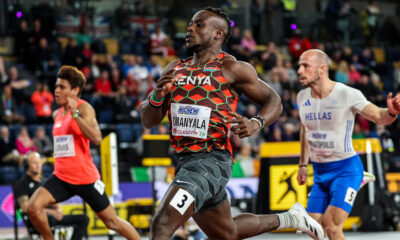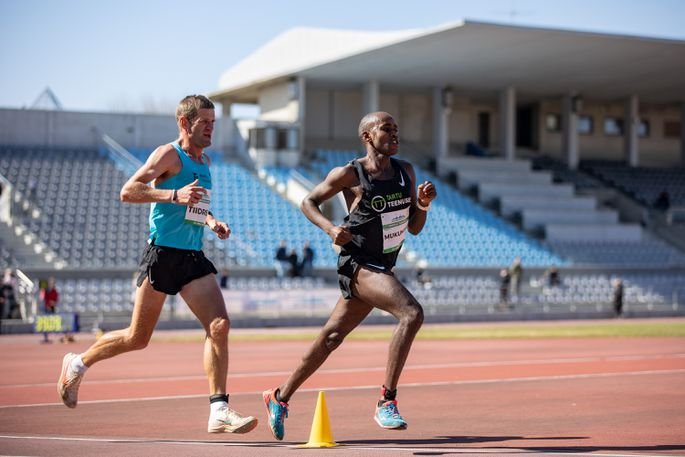- The two are suspended after their samples tested positive for a banned substance.
- This brings up to 14 Kenyan athletes the Union has suspended since July.
- The 2021 Boston Marathon winner was also recently suspended after testing positive for a banned substance.
The Athletics Integrity Unit has suspended two other Kenyan athletes, Ibrahim Mukunga Wachira and Kenneth Kiprop Renju, over doping allegations.

Kenya’s Ibrahim Wachira competed at the Tallinn Marathon, where he emerged as the fastest runner. Photo Marko Mumm
According to the Athletics Integrity Unit in a statement, the two were suspended after their samples tested positive for a banned substance.
Mukungu’s sample is said to have tested positive for methasterone, while Renju’s sample tested positive for methasterone.
This brings up to 14 Kenyan athletes the Union has suspended since July after Diana Kipyekoi was also recently suspended after her sample tested positive.
Renju has competed in and won different half-marathon events, including Prague and Lisbon Marathons.
In April, he became the champion in 10,000m at Prague and Lisbon and won the 10km race held in Lille.
The duo’s ban comes only four days after two other Kenyan athletes, Diana Kipyokei and Betty Wilson Lempus, were suspended for using banned substances.
Not long ago, AIU also suspended Kenyan marathon runners Mark Kangogo and Philemon Kacheran for doping.
Kacheran will be out of athletic competitions for up to three years.
AIU also prevented Lawrence Cherono, the 2019 Chicago and Boston marathon champion, from competing at the World Athletics Championships in Oregon for a doping offence.
What’s Doping in Athletics?
Doping is the use of prohibited substances by athletes to enhance their performance.
There are different forms of Doping, among them anabolic steroids and stimulants.
Effects of Doping
Athletes’ use of doping substances may have long- and short-term impacts on their physical and mental health depending on the dosage and duration.
According to the US U.S. Anti-Doping Agency (USADA), Doping can cause severe side effects with irreversible damage to one’s body. There is also a considerable correlation between the use of PEDs and mental health issues.
Doping will also significantly impact an athlete’s ability to train and compete. A ban may mean they can no longer work with other athletes or coaches. It is also important to note that individuals banned from the sport will also be prohibited from competing, coaching or working with Athletes in any other capacity in a different sport.
Other doping effects include
i). Central Nervous System:
This can cause insomnia, anxiousness, depression, aggressive behaviour, suicide, headache, addiction with withdrawal, psychosis, tremor, dizziness, and stroke.
ii). Respiratory: nose bleeds, sinusitis
iii). Hormonal: infertility, gynecomastia (enlarged breasts), decreased testicular size, low sex drive, acromegaly (coarse bones in face, hands, and feet), cancer
iv). moral dilemma. These banned substances are used to gain an unfair advantage, significantly devaluing the spirit of competition.
v). Cardiovascular: irregular heart rhythm, elevated blood pressure, heart attack, sudden death.
Penalties of doping
Penalties for a doping violations vary greatly between sports. In sports that follow the WADA Code, a single violation can result in a ban from sports competitions of up to 2 years, while a second violation may result in a lifetime ban.
The punishment for a first offence anti-doping violation in the NFL is a four-game suspension; in the NBA is a 5 game suspension, and in the NHL a 20-game suspension.















You must be logged in to post a comment Login